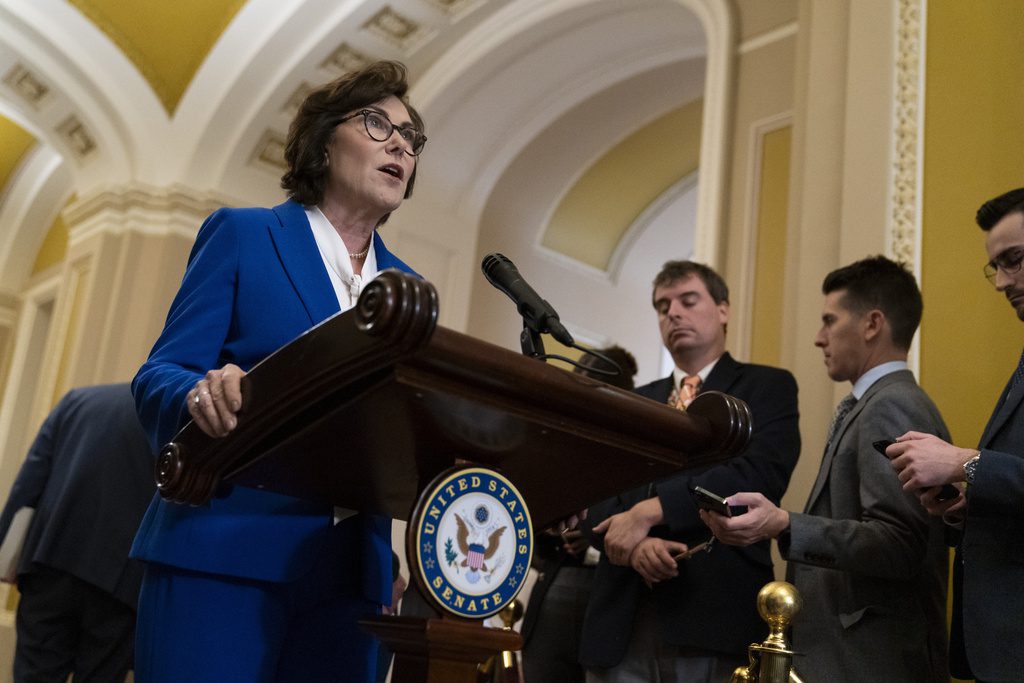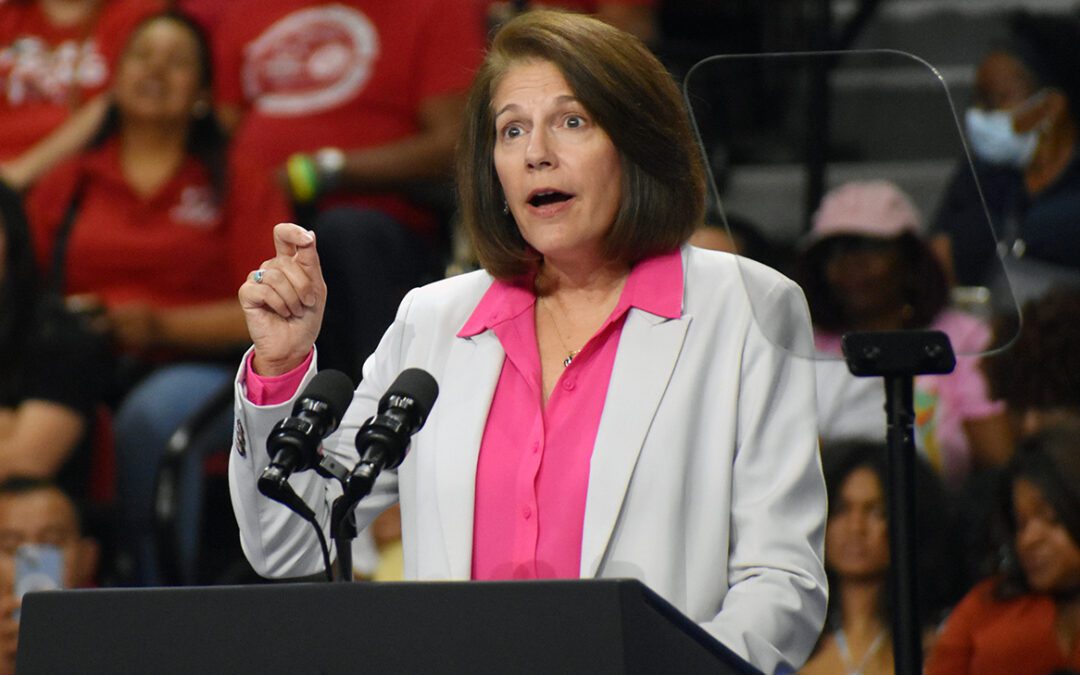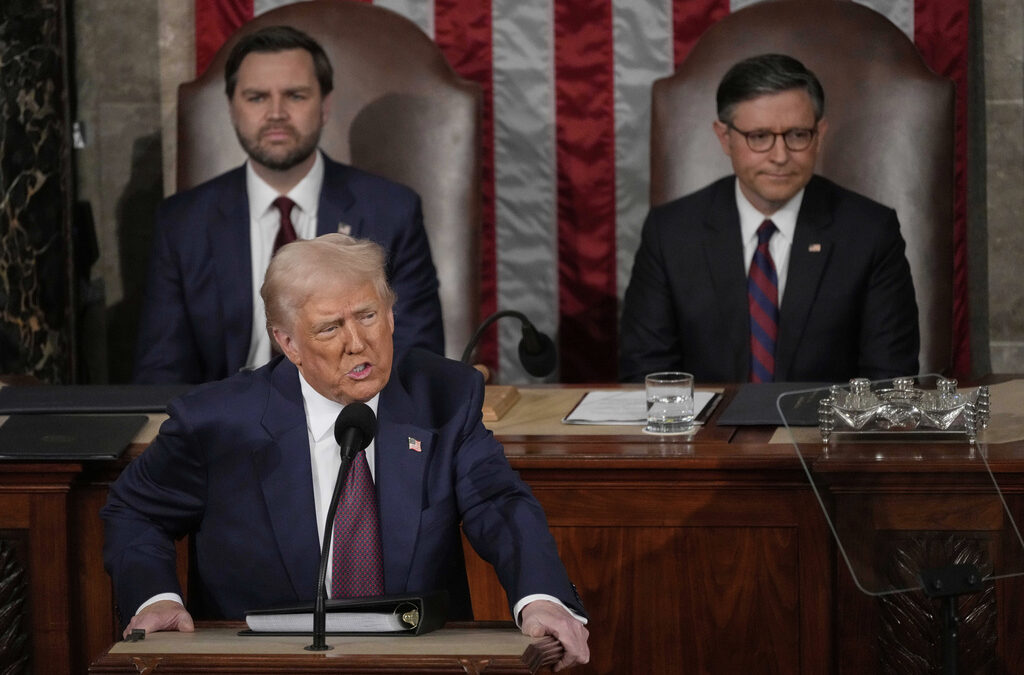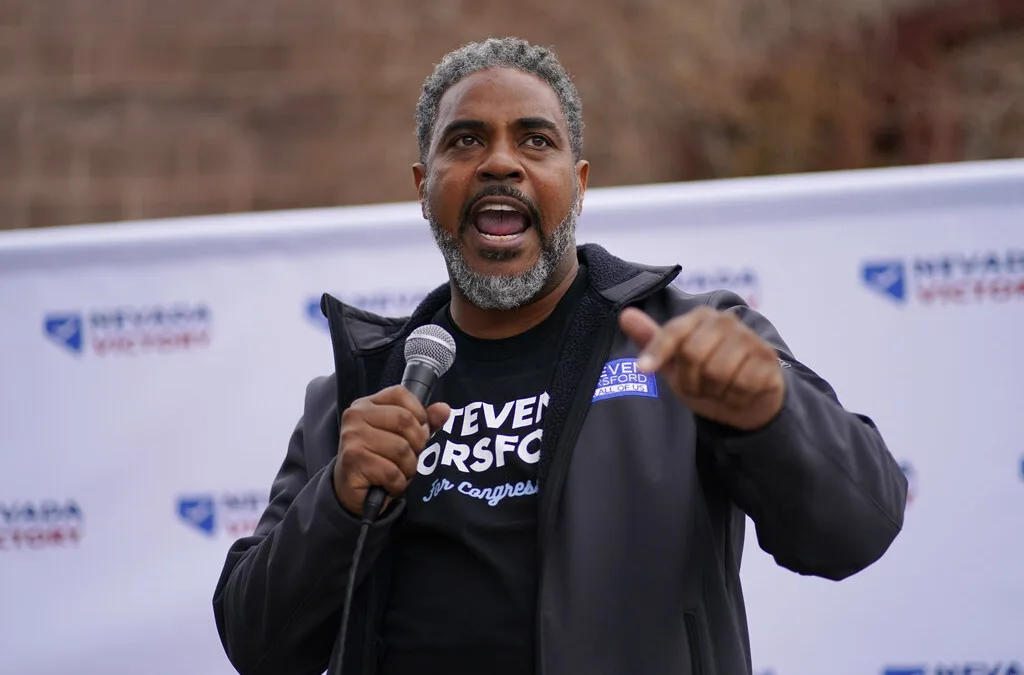
FILE - Sen. Jacky Rosen, D-Nev., speaks to media after a Senate Democratic policy luncheon, Oct. 17, 2023, on Capitol Hill in Washington. (AP Photo/Stephanie Scarbrough)
Rosen told The Nevadan her office has returned nearly $1.9 million to date in unspent operating funds back to the US Treasury Department since first joining Congress in 2017.
Nevada US Sen. Jacky Rosen announced she is supporting new legislation aimed at eliminating frivolous spending in the federal government — and touted her office’s own financial savvy in the process.
Rosen, a Democrat, on Thursday signed onto the Identifying and Eliminating Wasteful Programs Act, which was introduced in March by Sen. Maggie Hassan (D-NH). If enacted, the bill would require each federal agency to compile a list of “unnecessary” programs and also require the President to include the list of programs in the annual budget submitted to Congress.
In addition to her support for the bill, Rosen’s office also told The Nevadan it has returned nearly $1.9 million in unspent funds from her office’s operating budget back to the US Department of the Treasury during her tenure in Washington. Rosen served one term in the US House beginning in 2017, and was elected to her first Senate term in 2019.
RELATED: Rosen bill seeks to lower prescription drug copays for seniors
“Nevadans work hard for every paycheck, and they expect the federal government to use their tax dollars efficiently and effectively,” Rosen said in a statement. “I’ve made it a personal priority to root out waste, fraud, and abuse in federal spending and lead by example on fiscal responsibility, including by returning unused funds from my office back to the Treasury Department.”
According to the bill’s language, agencies would be directed to draft a list of all “unnecessary, defunct, or unnecessarily duplicative federal programs.” Officials would also be mandated to report whether another agency could administer said program more effectively, or if the program could operate more efficiently if it were consolidated with other programs or activities.
Further, agencies could submit to Congress any recommendations for statutory changes that could eliminate or consolidate programs identified on the cull list.
Along with Hassan, the bill was initially cosponsored by Republican Mike Braun of Indiana. It was referred to the Senate Committee on Homeland Security and Governmental Affairs, which Rosen sits on, and passed unanimously. It’s unclear which committee might consider the bill next.
Officials say the bill would change how the federal government currently reviews different ways to reduce or eliminate overlap within its agencies, and because of that, would likely not be fully implemented until 2028. But officials aren’t able to gauge exactly how much it could save the government, as the total savings would be determined after identifying which programs would be cut.

Trump’s plan to gut Medicaid to pay for tax cuts for billionaires ‘would be devastating for Nevadans,’ senator warns
Nevada Democratic US Sen. Catherine Cortez Masto said a Republican plan to cut taxes on the rich can only be offset by about $880 billion in cuts to...

Cortez Masto reintroduces bill to improve access to behavioral health and substance use disorder treatments
Nevada’s senior US Senator says the COMPLETE Care Act would allow primary care clinics to hire mental health professionals — a model that experts...

Discurso de Donald Trump en el Congreso: chequeo en español y resumen de falsedades, afirmaciones sin contexto y verdades
Si sólo tienes unos segundos, lee estas líneas: El presidente Donald Trump divulgó varias desinformaciones en su discurso ante el Congreso. El...

Nevada Democrats bring guests who’ll be impacted by Trump’s funding cuts to Congressional address
Nevada Democrats and others from across the US are using Tuesday night’s event to highlight the negative real-world impacts of the Trump...

What Trump’s order making English the official language in the US could mean
By FERNANDA FIGUEROA Associated Press As President Donald Trump is expected to sign an executive order designating English as the official language...

Rep. Steven Horsford introduces bill to eliminate taxes on tips, abolish subminimum wage
A new proposal from the Democratic congressman seeks to go beyond Trump’s campaign promise of cutting taxes on tips by also eliminating the...





